Woman who lost her home during Fiona calls for governments to do more
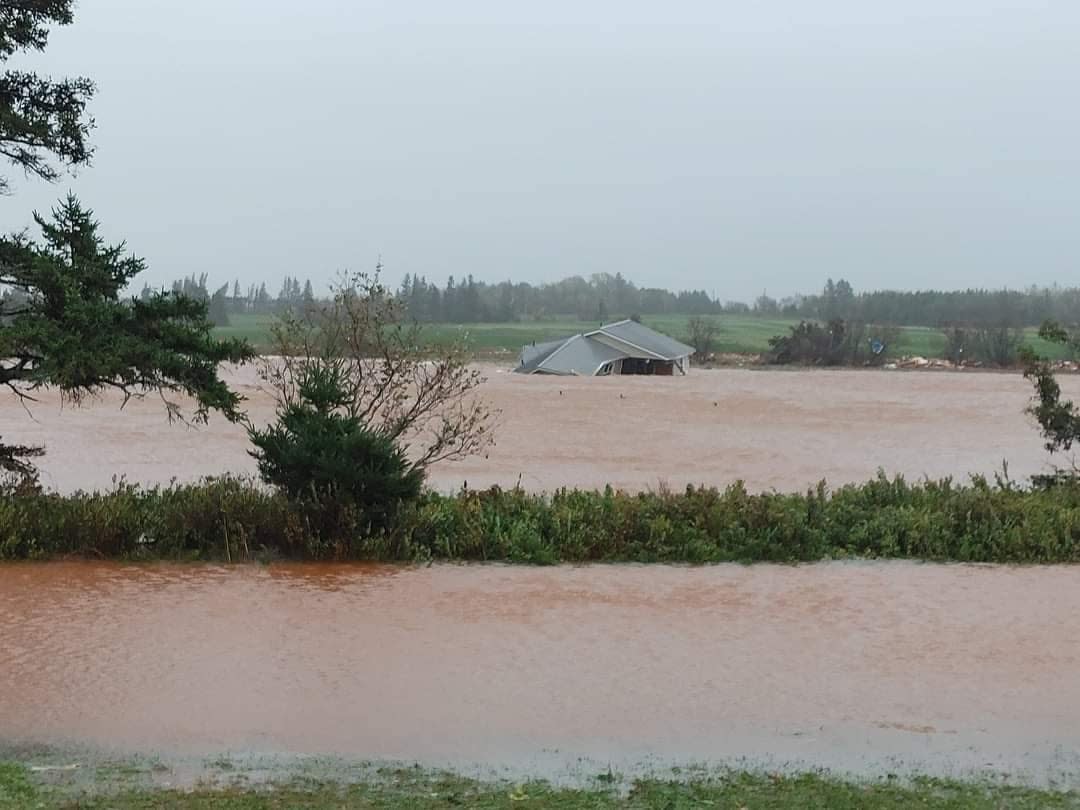
A woman whose home was swept away from a peninsula on P.E.I's north shore during post-tropical storm Fiona says governments need to do more to help people whose shoreline properties are now threatened by climate change.
Now more than a year after the storm, she's filing an appeal after the Red Cross rejected her compensation claim and insurance didn't cover the loss of her home.
Stephanie Bonnell had only moved to the Hebrides community on New London Bay a few months before Fiona.
"I didn't actually see it in person before I purchased it," said Bonnell, who grew up in Nova Scotia but worked for decades in Ottawa.
"Like many people during COVID, I did an online search. I had a great agent, and we did a video showing of the property and of all of the amenities here at the Hebrides," she said. "It seemed like it would be a great fit."
She took possession of the property in January 2022 and moved in the following July.
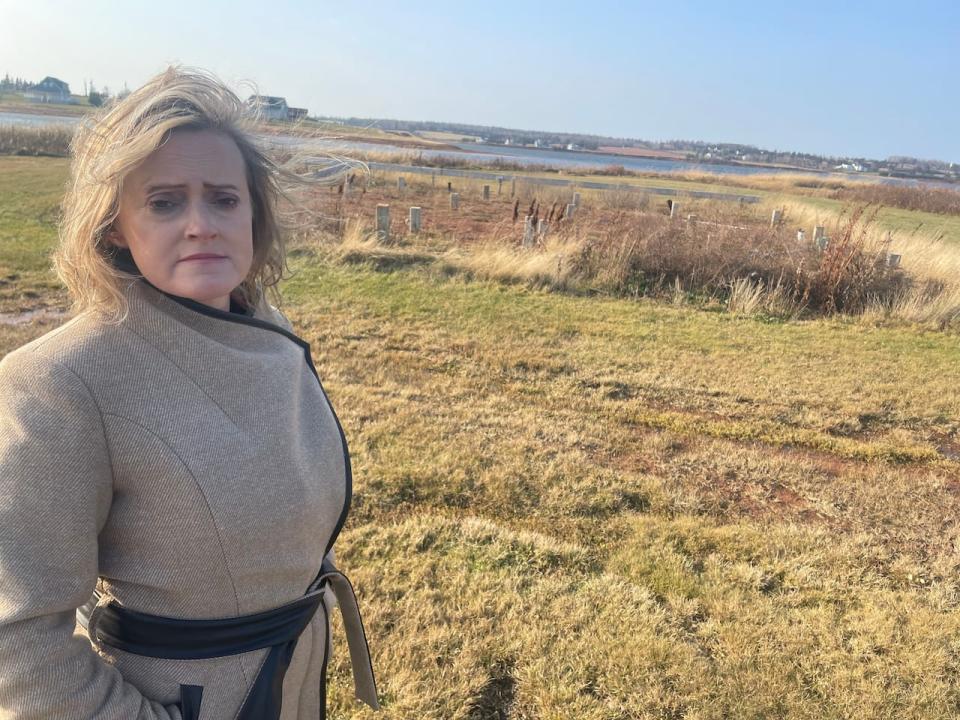
Stephanie Bonnell stands next to what is left of her home in the Hebrides. (Nancy Russell/CBC)
She intended to live in the property full-time while the community was open from April to November.
"I was undergoing some changes in my life, and I wanted to move to the East Coast," Bonnell said — figuring she could rent something short-term during winters until she got settled.
"Then I would spend my summers here at the Hebrides."
Fiona has changed those plans.
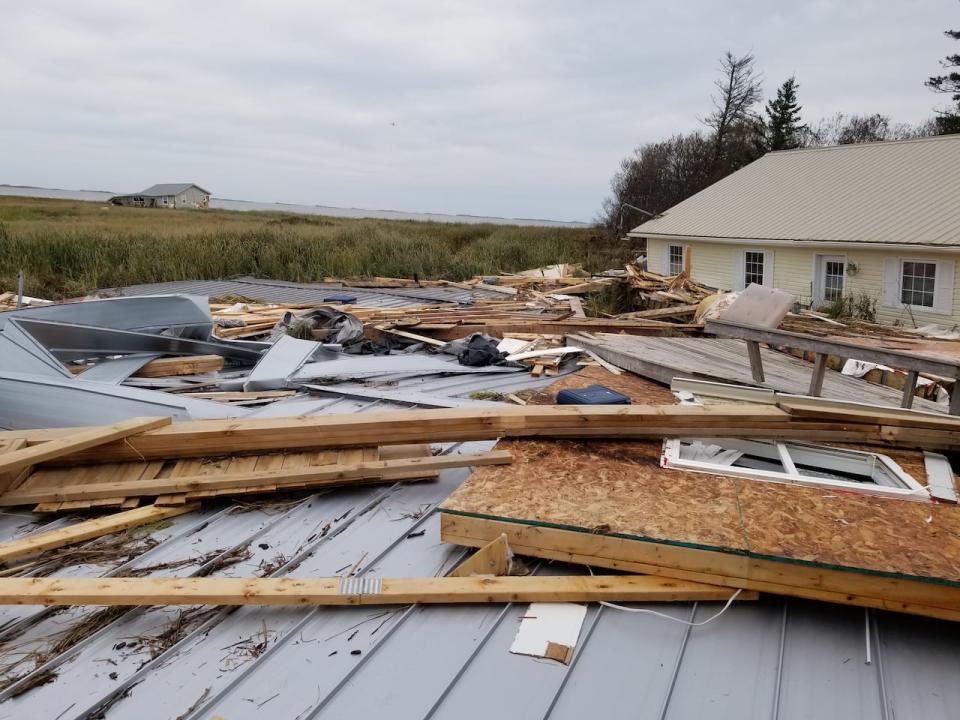
Stephanie Bonnell travelled back to P.E.I. on the Tuesday after Fiona and found the remains of her home in a marsh next to the Campbellton Road. (Submitted by Stephanie Bonnell)
On the night of the storm, in September 2022, her home was swept away, carried 1.5 kilometres along New London Bay and landed in a marsh along the Campbellton Road — one of five buildings to end up there.
She had gone to her parents' home in Nova Scotia with her dogs, to ride out the storm.
"I started seeing pictures on the Saturday of homes here being displaced and one in particular floating down New London Bay.
"And I immediately thought that that was most likely my home floating down the bay," Bonnell said.

Stephanie Bonnell's dogs at her home in the Hebrides. (Submitted by Stephanie Bonnell)
Once the roads were safe to travel, she made the trip back to P.E.I. to find what was left of her home.
"My deck was sitting there. I found my front door. I identified it with my key. I was able to open the door," Bonnell said.
"I was just in complete shock that it went from a new place for me to just rubble."
Insurance claim rejected
Now, just a few months after moving to P.E.I, Bonnell had no home.
She filed a claim with her insurance company, but it was rejected because damage from a storm surge was not covered.
Then she applied to the Provincial Disaster Financial Assistance Program (PDFAP), being administered by the Red Cross.
Her application was submitted in January 2023, and in October she found out her claim had been rejected.
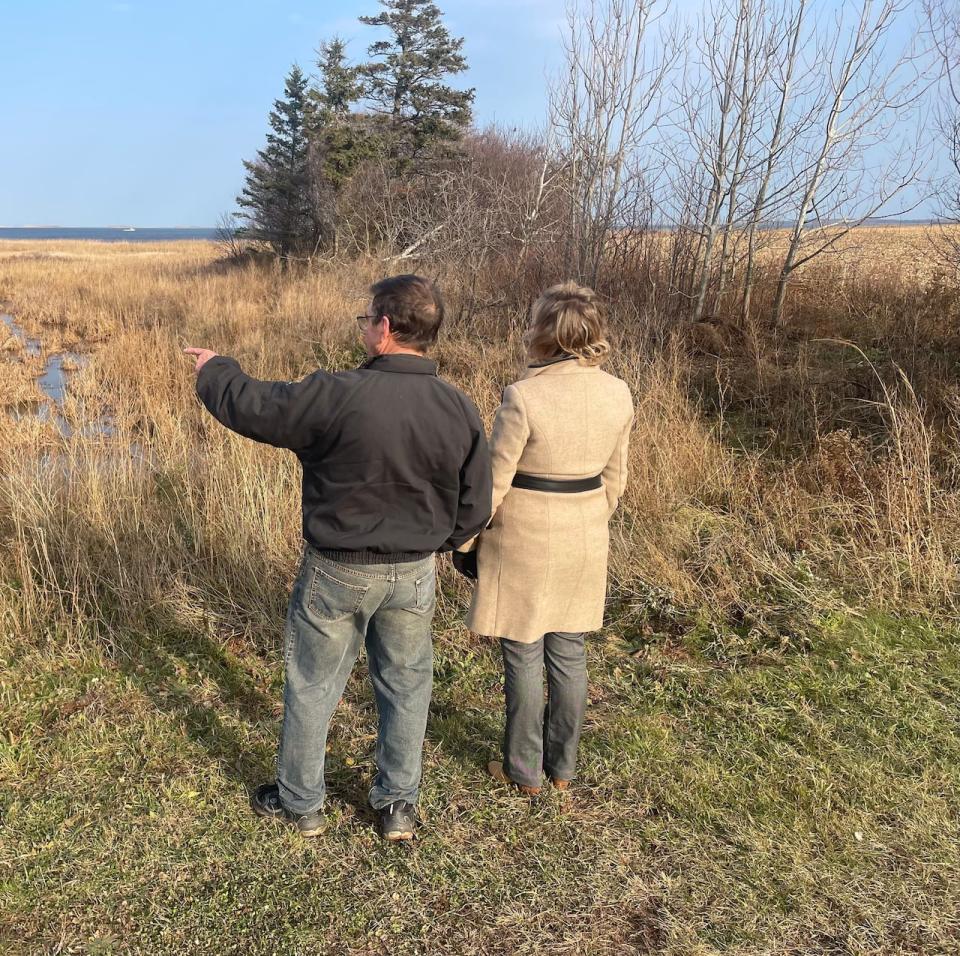
Stephanie Bonnell and her stepfather Wray Strong stand on the spot where the debris and buildings from the Hebrides landed in last fall. (Nancy Russell/CBC)
The rejection letter said the disaster relief program only applied to primary residences, but Bonnell said the home in the Hebrides was her primary residence.
"I had no other place where I could go, so for me it was very clear that I met the primary residence criteria because I had no other lease, rental, or purchased home that I was able to live in at the time of the hurricane."
She was also told her home was on a flood plain, she said, as outlined on a map on theCoastal Hazard Information Platform, posted on the P.E.I. government website in December 2021.
She said the purchase was made in November 2021, and the home was built more than 25 years ago.
Bonnelll said she was never told that there was any risk of flooding, and was given a mortgage and insurance.
"They're saying that I bought it, and that it was on the flood plain so I shouldn't get covered, even though the federal guidelines clearly state that I'm eligible," Bonnell said.
"When I purchased it, I was not aware that there were any significant flood risks."
Otherwise, I just have to accept the decision and continue to pay the mortgage and the homeowners association fees until it's paid off. - Stephanie Bonnell
Bonnell's $380,000 claim is for the loss of the building and her belongings, and cleanup on the property.
She filed an appeal to the Red Cross but said she's not hopeful.
"If my appeal is not successful, I might seek one last bit of legal advice to see if there's any sort of additional recourse," Bonnell said.
"Otherwise, I just have to accept the decision and continue to pay the mortgage on the property and the homeowners association fees on the property until it's paid off, which would be 20-plus years in the future, and make some decisions on my plans going forward given the huge financial loss."
Government help
She's considered declaring bankruptcy, but said that would affect her ability to buy a house for years to come.
She said the federal and provincial governments need to do more for people whose properties are now threatened by climate change.
"I think people just need to be aware when you purchase the property, there should be some process in the sale to give homeowners that information of, 'is it a floodplain? What can you do about it?'"

The view from Stephanie Bonnell's home in the Hebrides before Fiona. (Submitted by Stephanie Bonnell)
The P.E.I. government offers a free Coastal Hazard Assessment to find out more about the vulnerability of a property to coastal hazards, as well as an online course called Protecting P.E.I. Homes from Flooding and Erosion.
But Bonnell said governments need to do more.
"If we shouldn't be buying and building and living on properties of high risk due to climate change, then Canada has to figure out a strategy for ensuring that this doesn't happen to people in the future," Bonnell said.
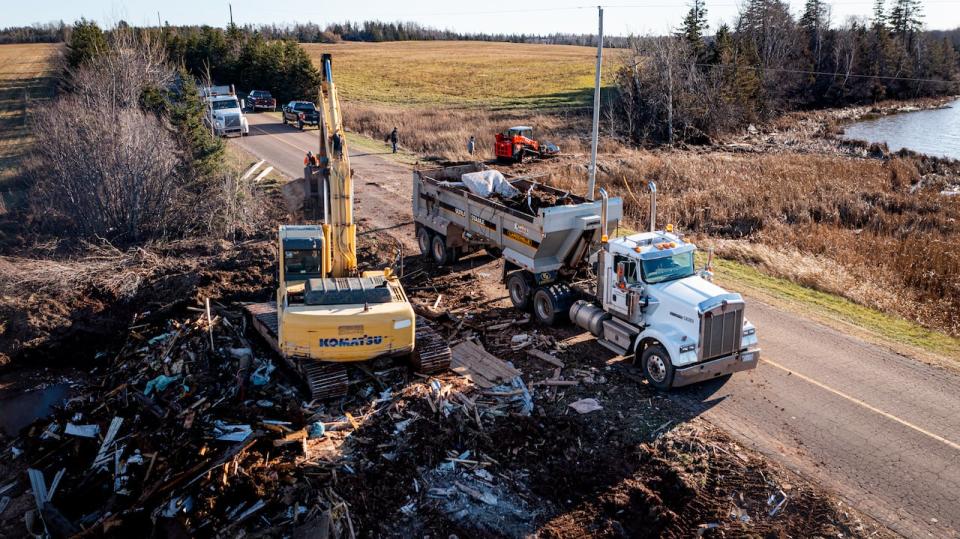
The cottages and debris had been along the Campbellton Road being cleared away in December 2022, including some belonging to Stephanie Bonnell. (Shane Hennessey/CBC)
P.E.I. Environment Minister Steven Myers said he is talking to the federal government about purchasing properties that are in areas at risk of coastal flooding.
Bonnell agrees that the government has a role in safeguarding the coastline.
"If you don't want anyone to build on these flood plain properties, perhaps a solution is the government actually purchasing the land, and to ensure that nothing gets built and destroyed in future storms due to climate change," Bonnell said.
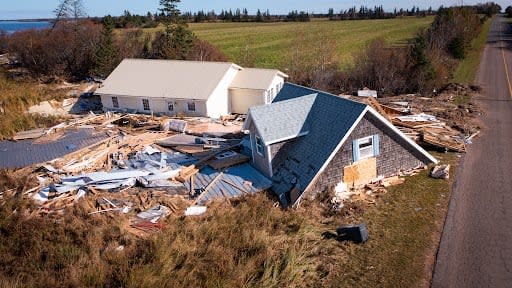
This is where Stephanie Bonnell's home landed after being swept along New London Bay the night of post-tropical storm Fiona. (Shane Hennessey/CBC)
She also hopes the process for determining compensation claims can be improved, she said, including more timely decisions.
"They were aware of my situation, and since the hurricane. I've basically bounced around to 10 different places to live, and I've made them very aware that this has had a huge impact on my life personally."
I've made them very aware that this has had a huge impact on my life personally. - Stephanie Bonnell
Bonnell has put her property in the Hebrides up for sale, part of trying to move on with her life, post-Fiona.
"It's not the easiest. I have been here a few times since the hurricane, so I have had those moments of 'I can't believe this,' tears, frustration. So I've been through all of that already."
"I just don't think that I could go through this again. And I don't want every forecast of a potential hurricane to have me worry and wonder what's going to happen."

